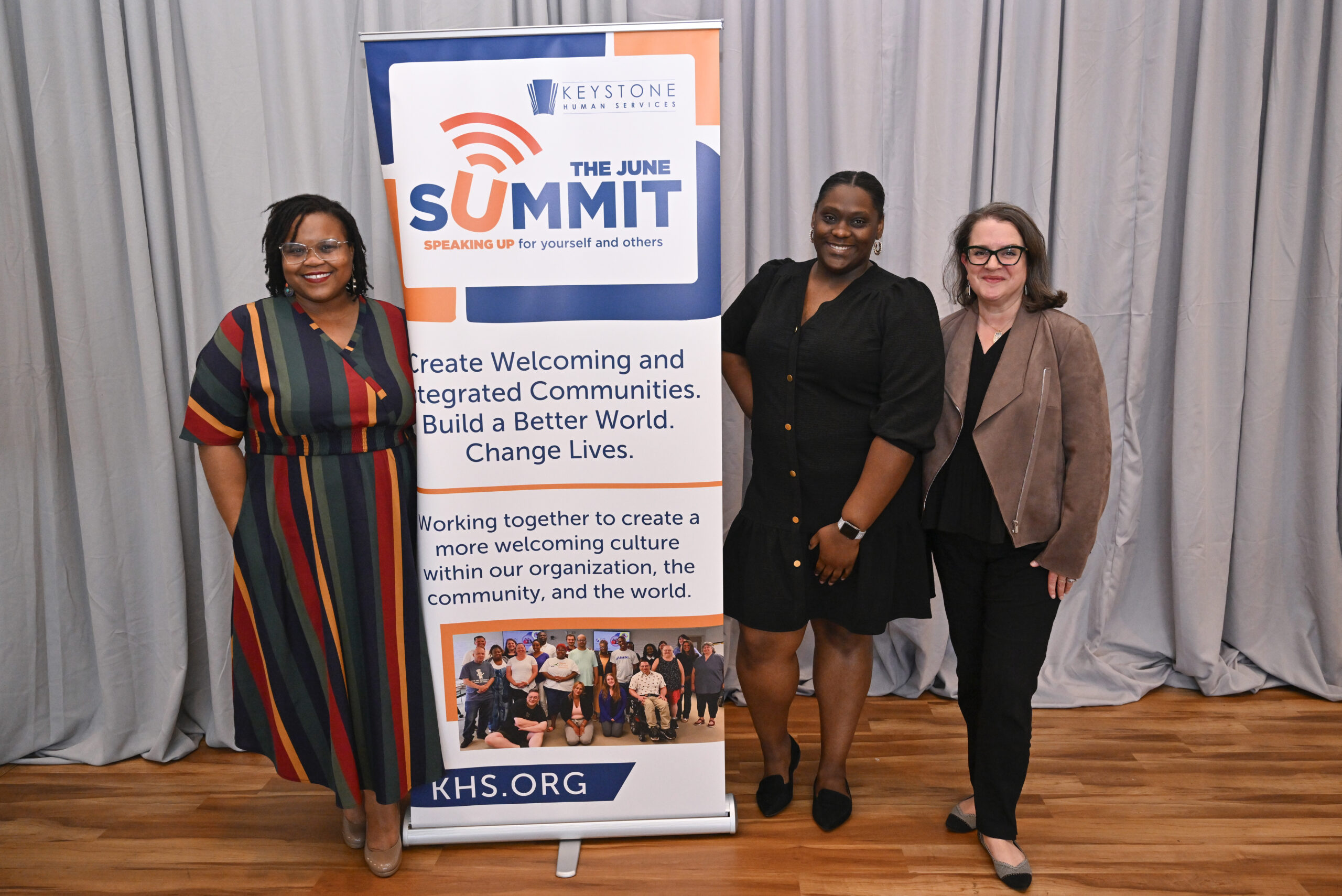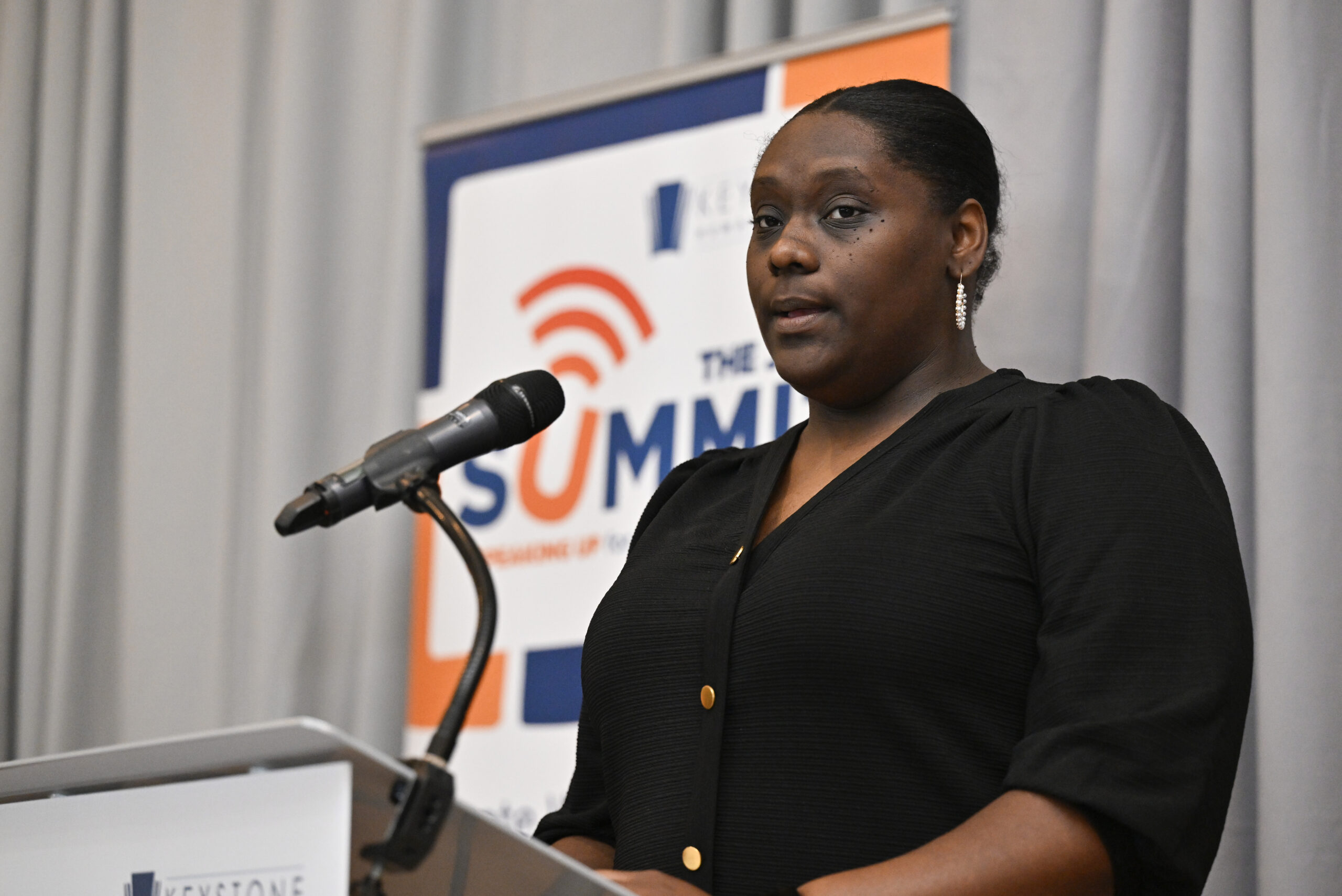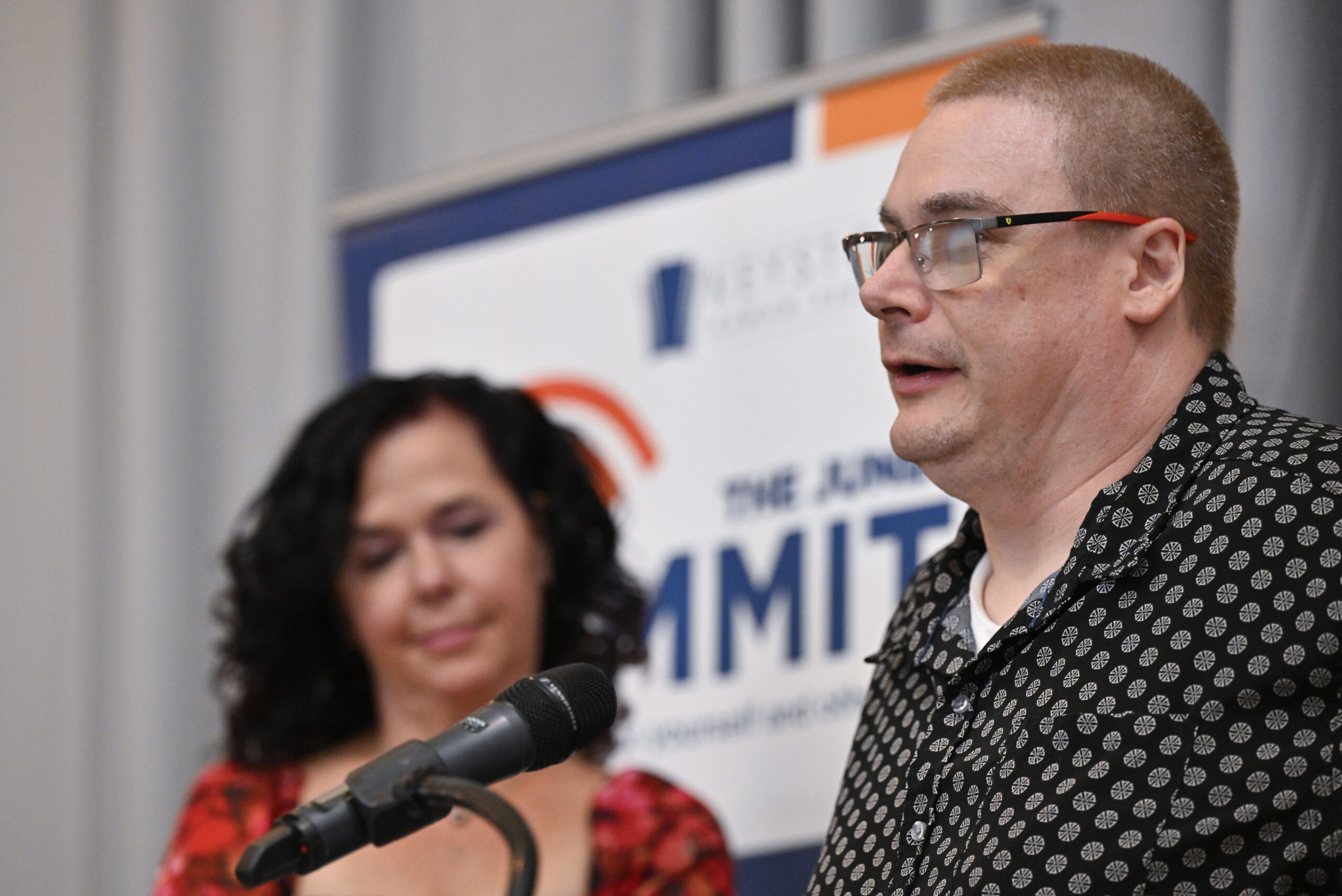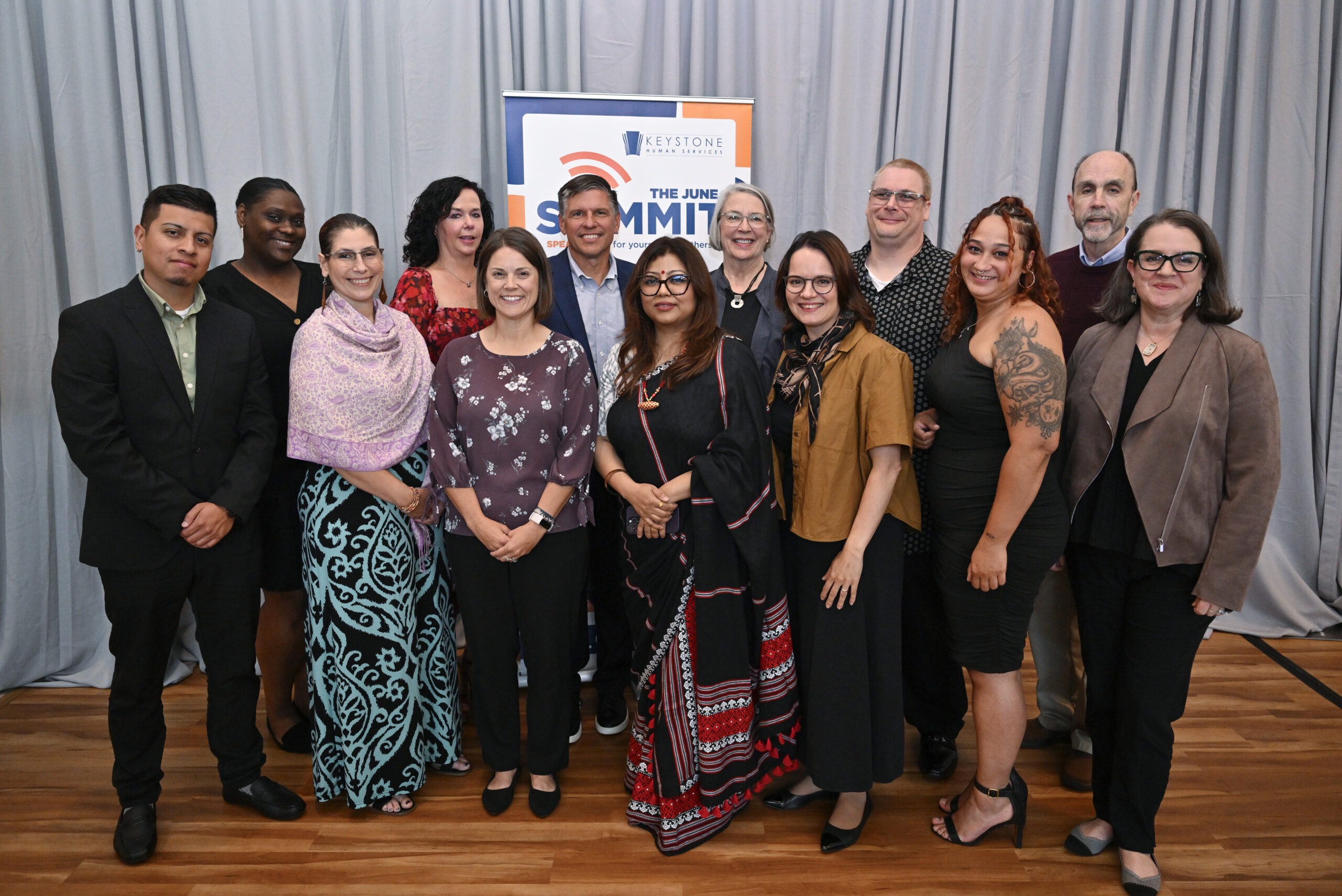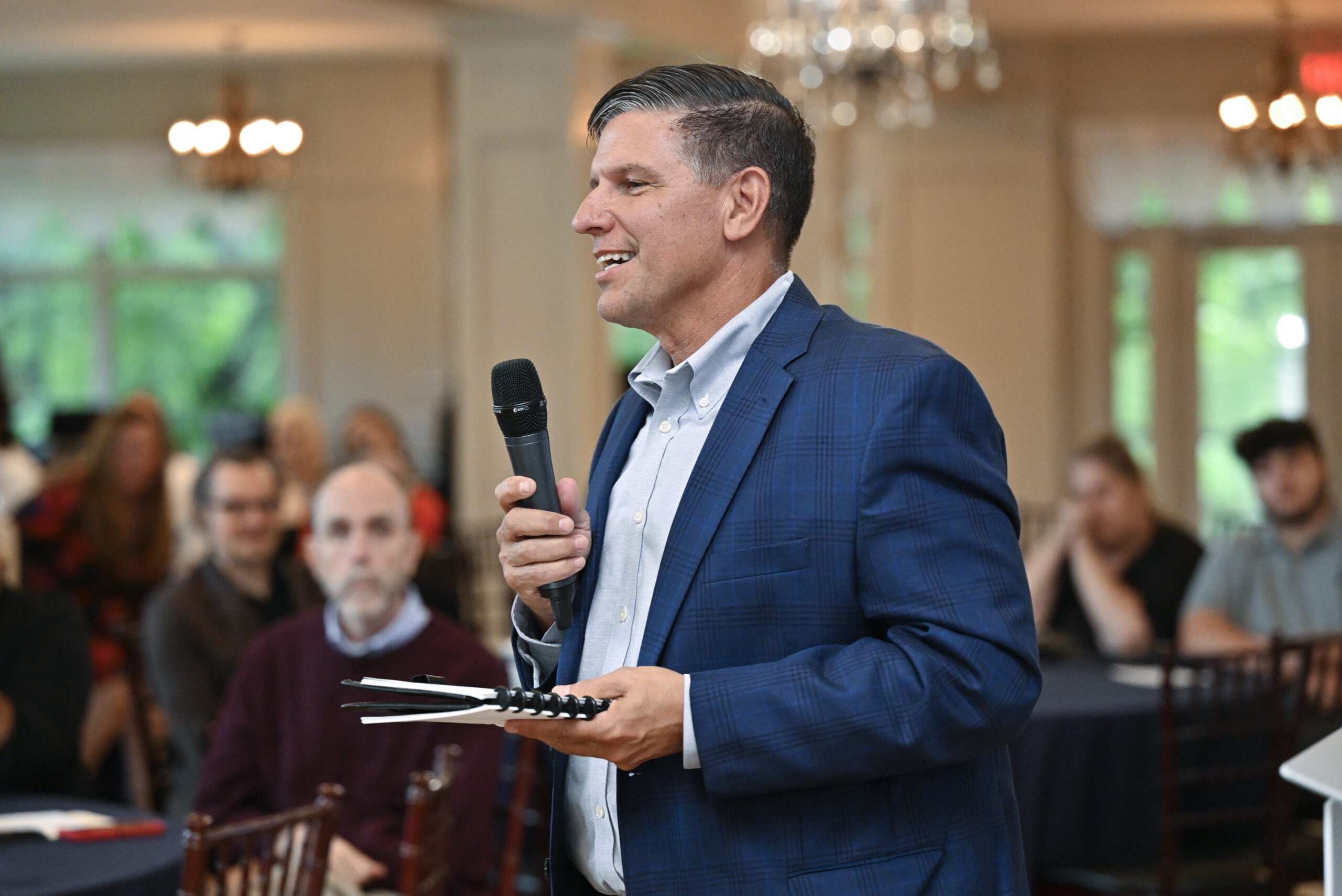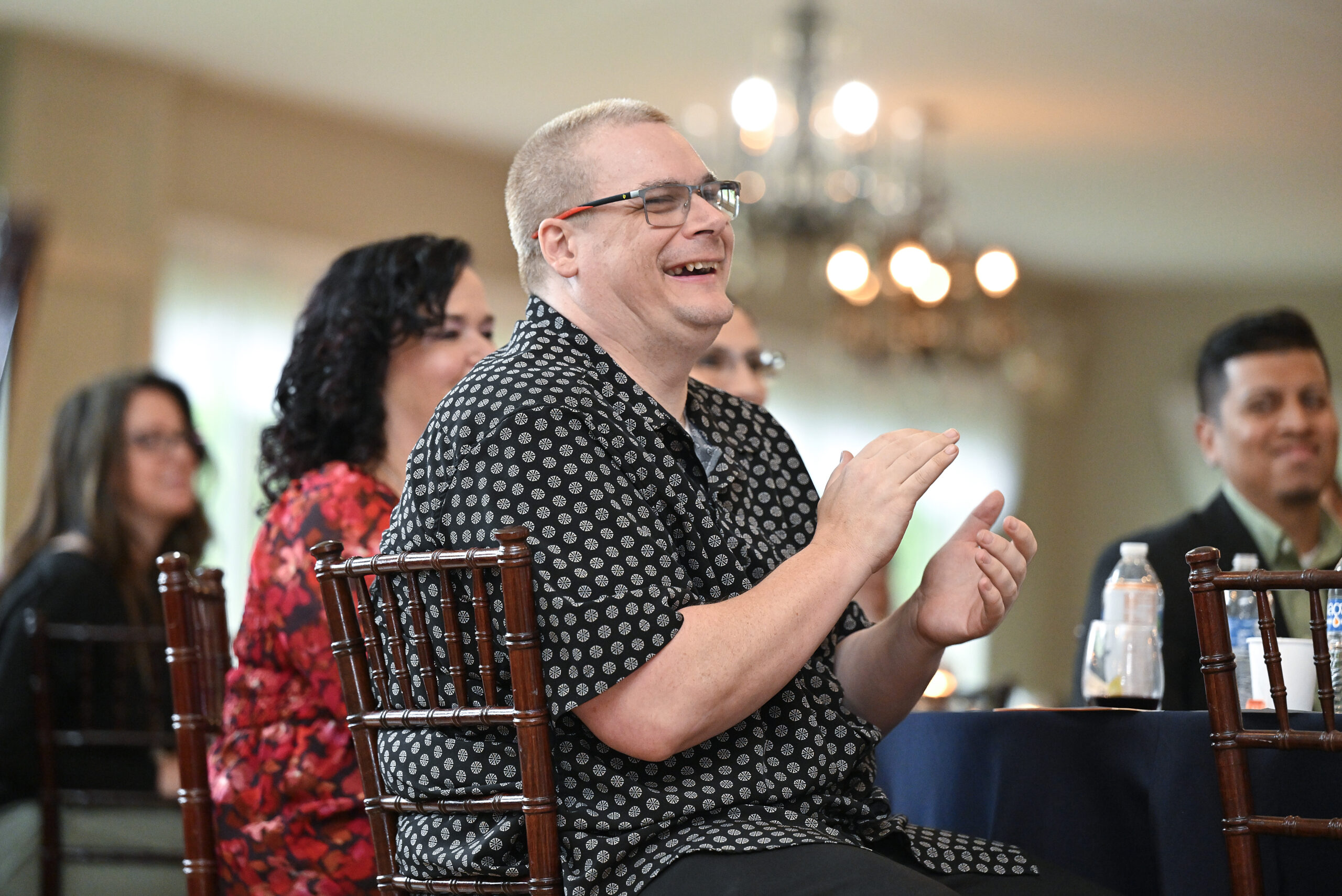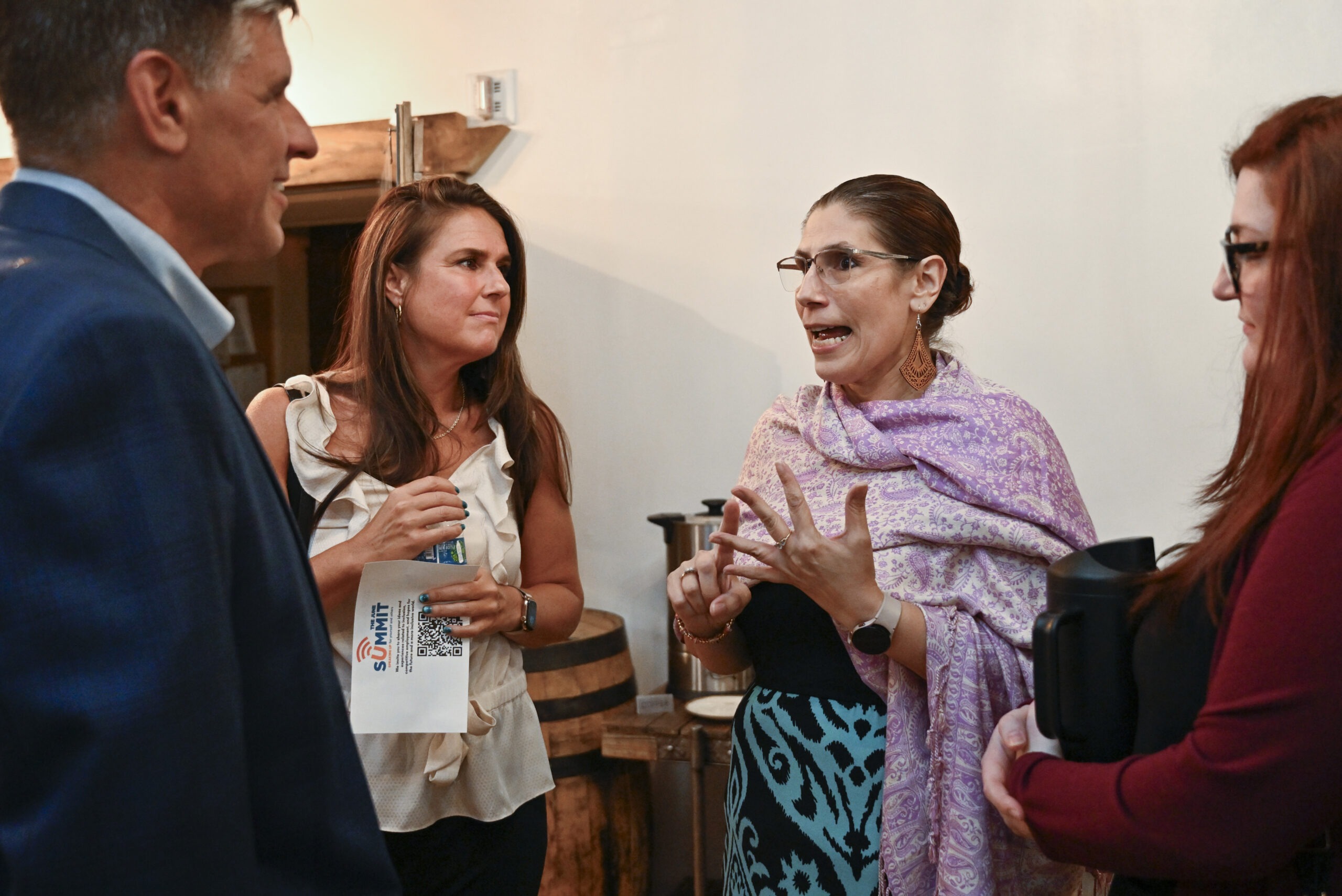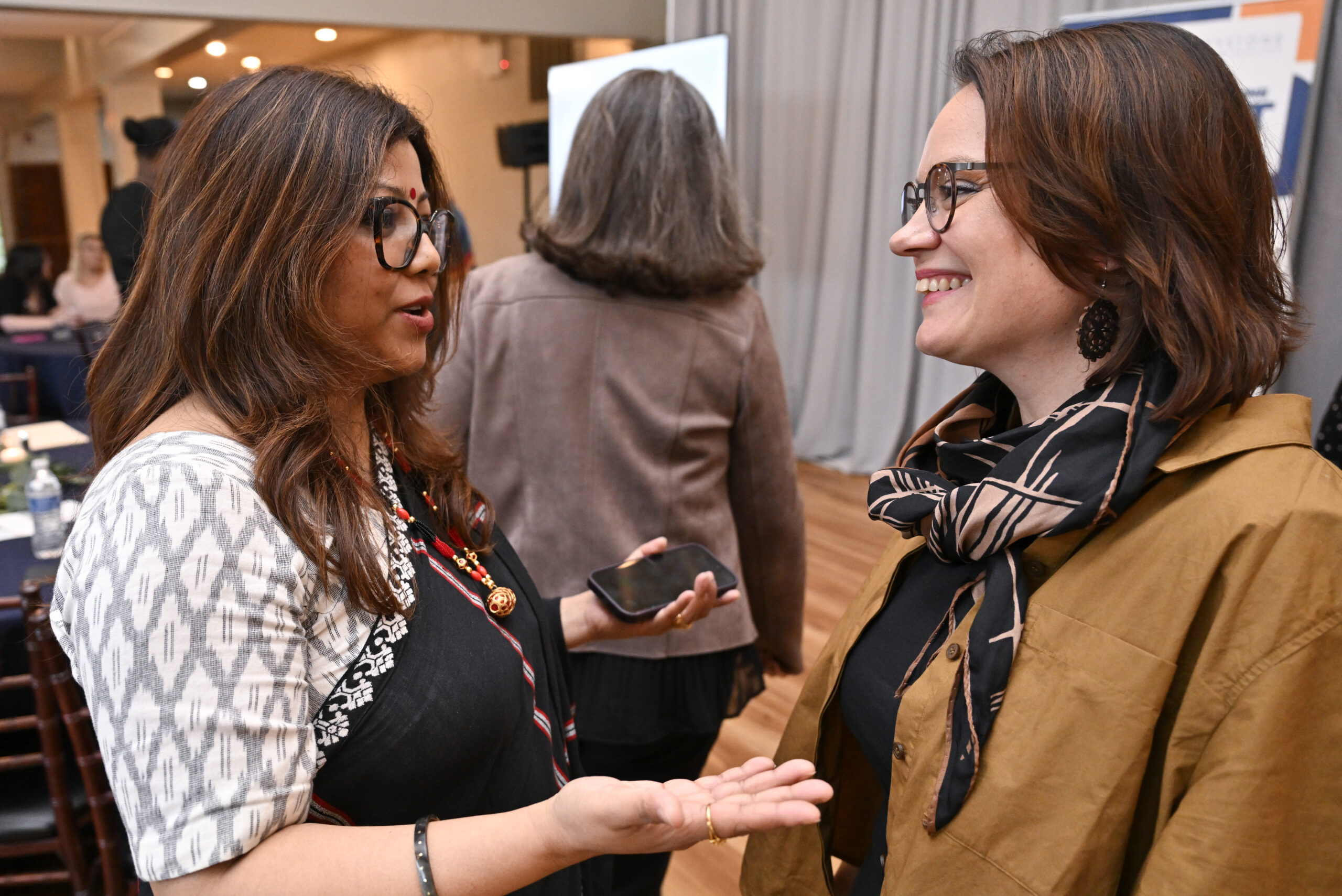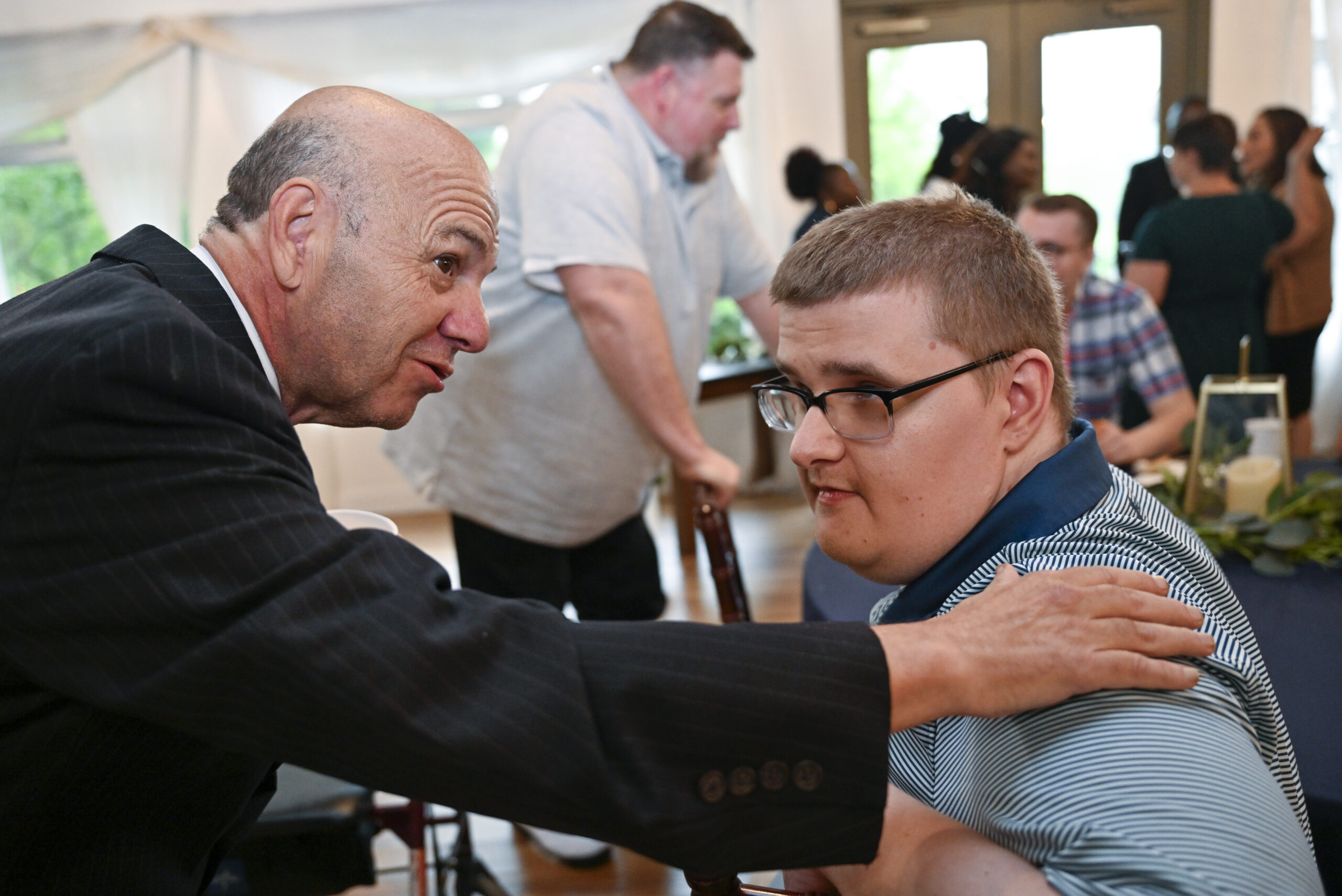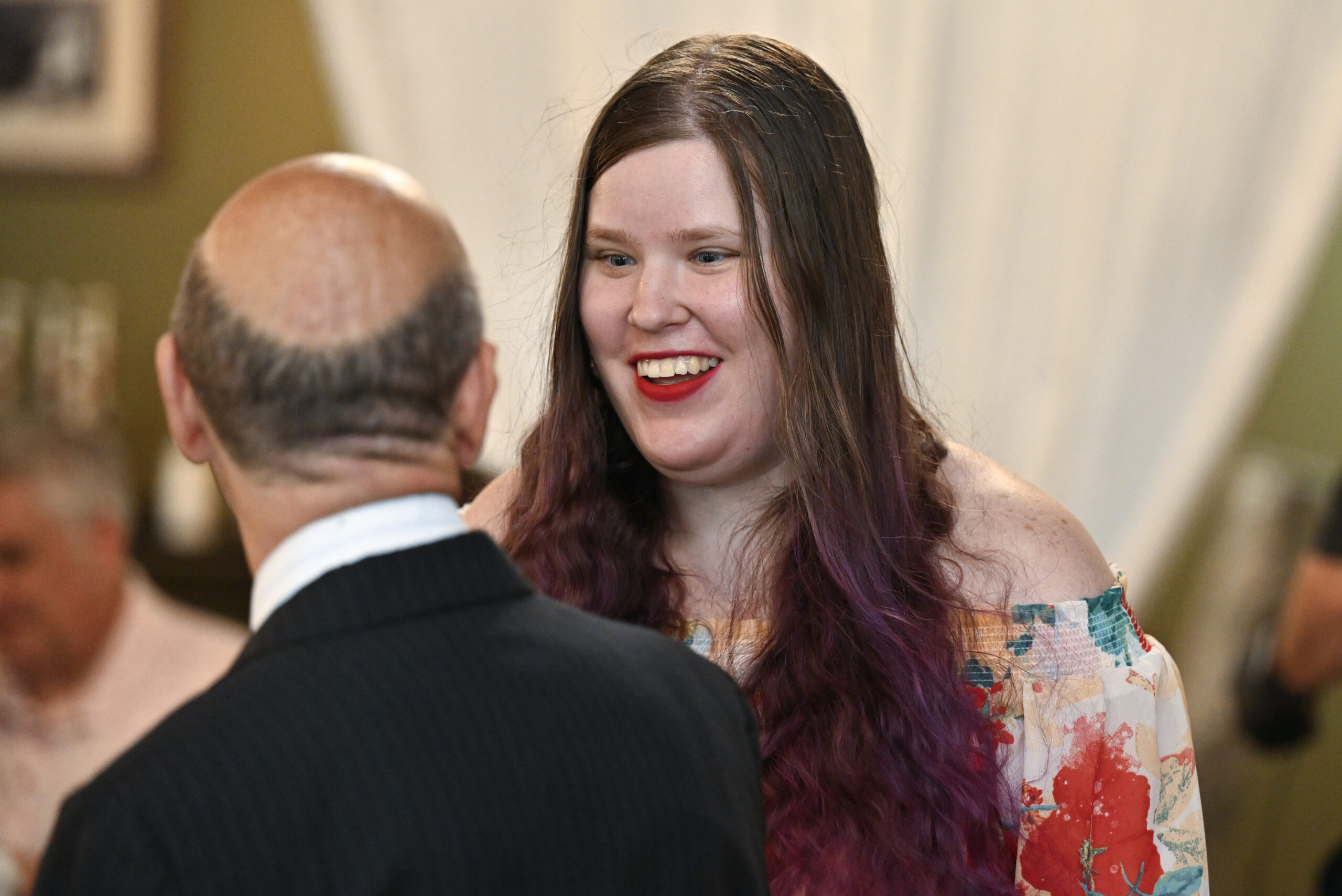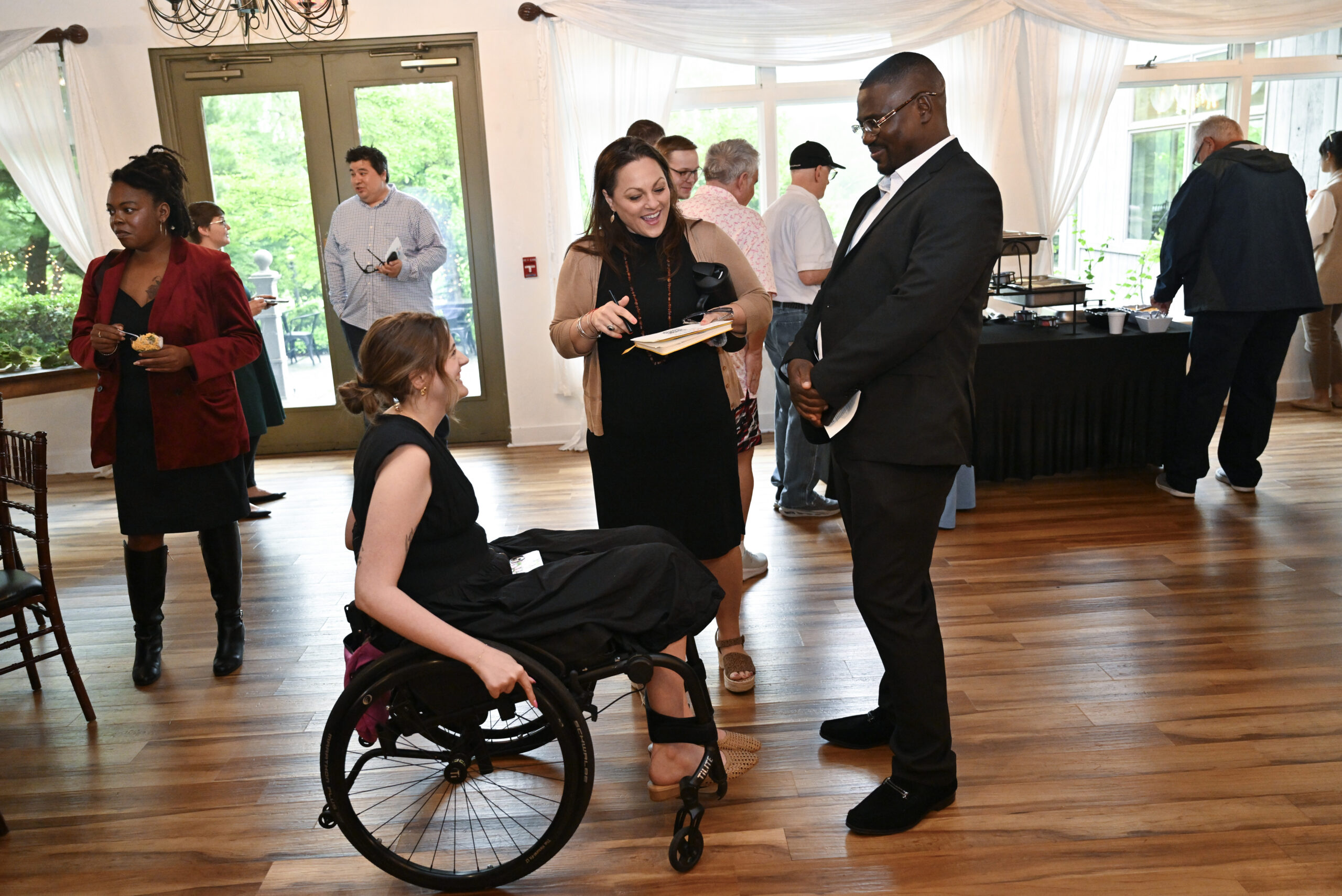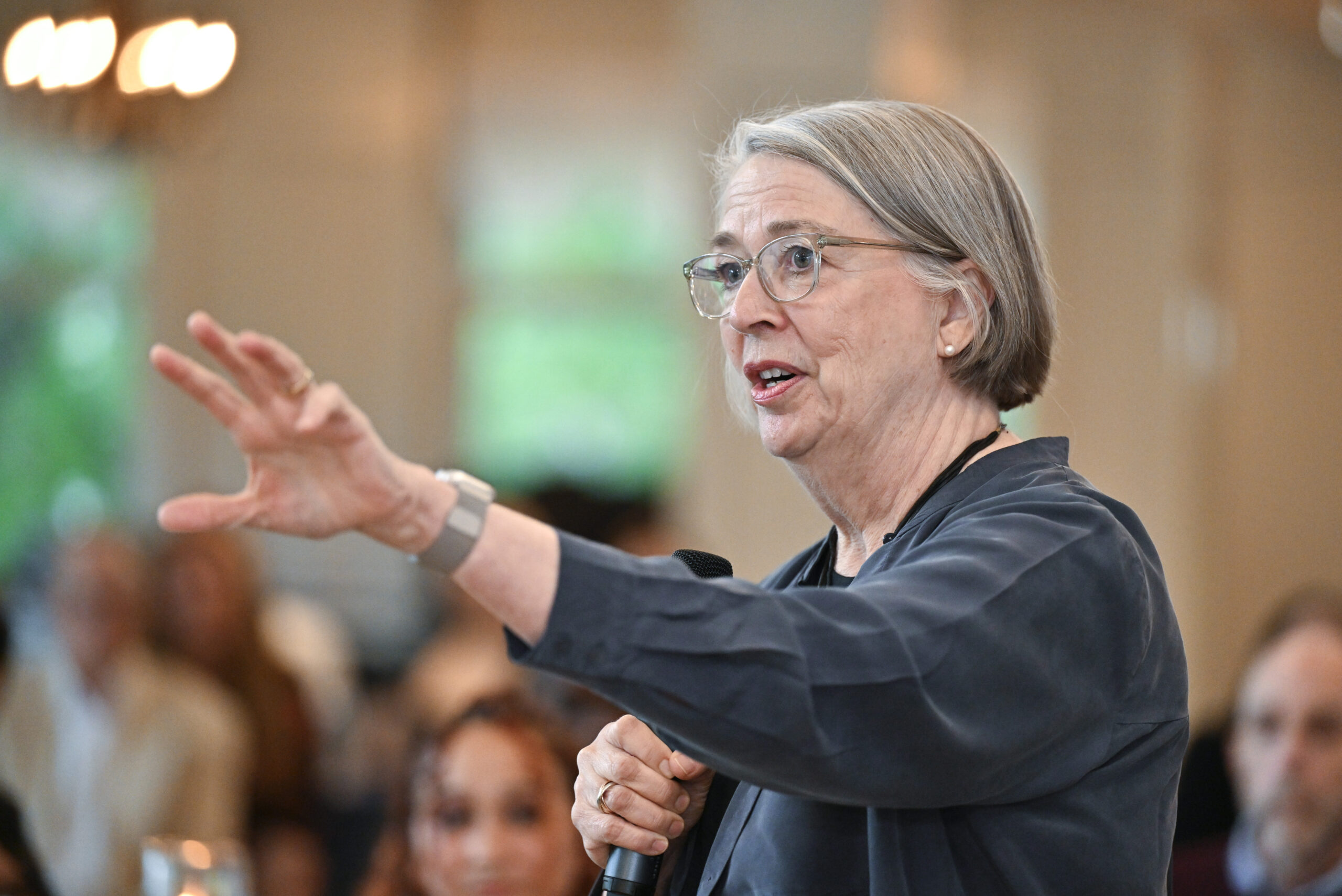The fifth edition of the June Summit held in Harrisburg on June 17, 2025 brought together experiences from Keystone Human Services (KHS), a presentation from Finland, and a powerful keynote address from Sue Swenson, President of Inclusion International. Over the years, this Summit has become a platform to highlight new thinking and global practices around service provision for persons with disabilities and inclusive practices, while creating a space for learning.
“Building partnerships and connections gives us opportunities to learn, grow, and improve,” said Charles S. Sweeder, President and CEO of KHS. Partnerships was also the theme of this year’s Summit– highlighting partnerships that foster disability inclusion. The event offered a glimpse into the many forms of partnerships and how they impact access to rights, participation in the community, and good, person-driven support.
Recognizing the power of partnerships and cross-learning, Sue applauded KHS for exploring ways to incorporate the Listen Include Respect global guidelines into our work and our thinking around “good support.”
“Good support doesn’t put the support between the person and the community,” Sue said. “People with disabilities have to live their own lives. It’s not anyone else’s responsibility to live their lives for them, to make them happy.
“That is why the work that you are doing is so important,” she added.
KHS has been exploring the elements that make up good support and working to ensure they are a natural part of the services people choose to accept. As people change over time, support should adapt and grow with them.
What is good support?
- People accepting services are in control.
- Their decisions are respected.
- They’re listened to and can say what they think.
- They understand what is happening around them and are included and involved.
- They’re developing new skills.
- The support is personal to them.
- Supporters are active, meaning they are paying attention and an understand what support a person needs at any given time.
KHS has incorporated discussions of good support in New Employee Orientation, led by people with disability.
“We need to make sure the voices of people with disability are heard,” said Jordon Beasom, a co-leader of New Employee Orientation who is also helping other people with disability learn how to talk about their experiences.
Learning from people with disability and partnering together is an essential part of providing good support. This was echoed by Petra Rantamäki, Development Director from Tukena Foundation in Finland. Like KHS, Tukena is embarking on a journey to operationalize the LIR guidelines.
“Partnerships mean connecting with people around the world, connecting with people with disability to make their voices heard, connecting with families,” Rantamäki said. “We can learn together and from each other. We must give people with disability and families the support to change the world.”
“One of the amazing things about partnerships and connections is they allow us to look at different ways of thinking and doing things,” said Dorodi Sharma, Director of Inclusive Development and Engagement for Keystone Human Services International. “It’s important to continually question ourselves. Are we really person-driven? Are we listening? Are we respecting people?”
“Inclusion starts at the individual level. “It all starts with me and those who believe in KHS’s mission and vision. This is how inclusion truly begins,” said Giovanni Marquez, Associate Teacher with Capital Area Head Start.
“It’s crucial to help people find their voice within their family and community so they can live the life they want to live,” said Jennifer Hernandez, Family Support Counselor with the Adult Community Autism Program (ACAP).
“Too often we speak about people instead of with them,” said Shanta Mills, Mental Health Professional.
And that’s a key element of good support – working with and alongside people rather than for them. “We want to provide quality services that support people to live the best lives of their choosing,” said Karen Wolf, Associate Executive Director of Intellectual Disability Services in Pennsylvania.
Peer Support pairs people experiencing mental health conditions with Certified Peer Specialists with lived experience, offering a unique partnership predicated on understanding, support, and hope. “Lived experience is about being able to say ‘I understand,’” said John Bowling, Certified Peer Specialist. “It’s more than just being with people.”
Partnerships make it possible for the Student Assistance Program to provide mental health consultation to support children and teens in 67 schools in Dauphin County, Pennsylvania. “When a student is referred, the team works together,” said Sandy Gates, Supervisor and Mental Health Liaison for the Student Assistance Program. “With parental permission, we talk with the student to figure out together the best way to support them. Everyone, from the student, family, the school assistance team, and the KHS Student Assistance team, take an active role in connecting the student to the resources they need to be successful at home, school, and with their friends.”
Services include trauma-informed care, substance use prevention or treatment, and job and volunteer opportunities. Through it all, students have choices. They choose who they want to work with for therapy, and they have opportunities to build connections with role models.
KHS is working to create spaces where all people are positioned for success with full understanding and respect for each other’s rights. “We are shifting the focus of who we learn from, including people with disability in learning and working together as a team,” said Courtney Soto, Engagement Manager.
People with disability, providers, and leaders across the world face similar barriers in society. Building partnerships and connections informed by human rights, global development, and universal rights can help us all navigate these challenges.
“When we work together with people with disabilities, not just for people with disabilities, that is going to change the world,” said Sue.


